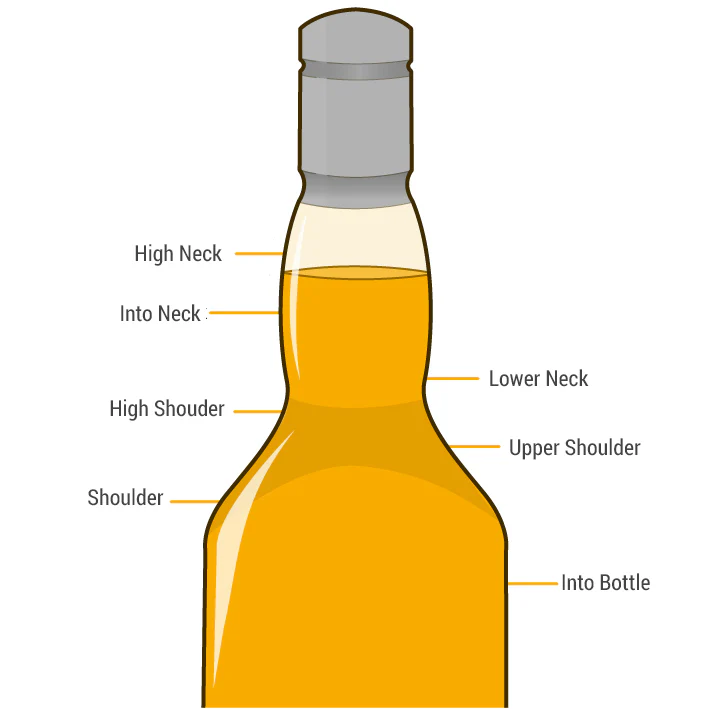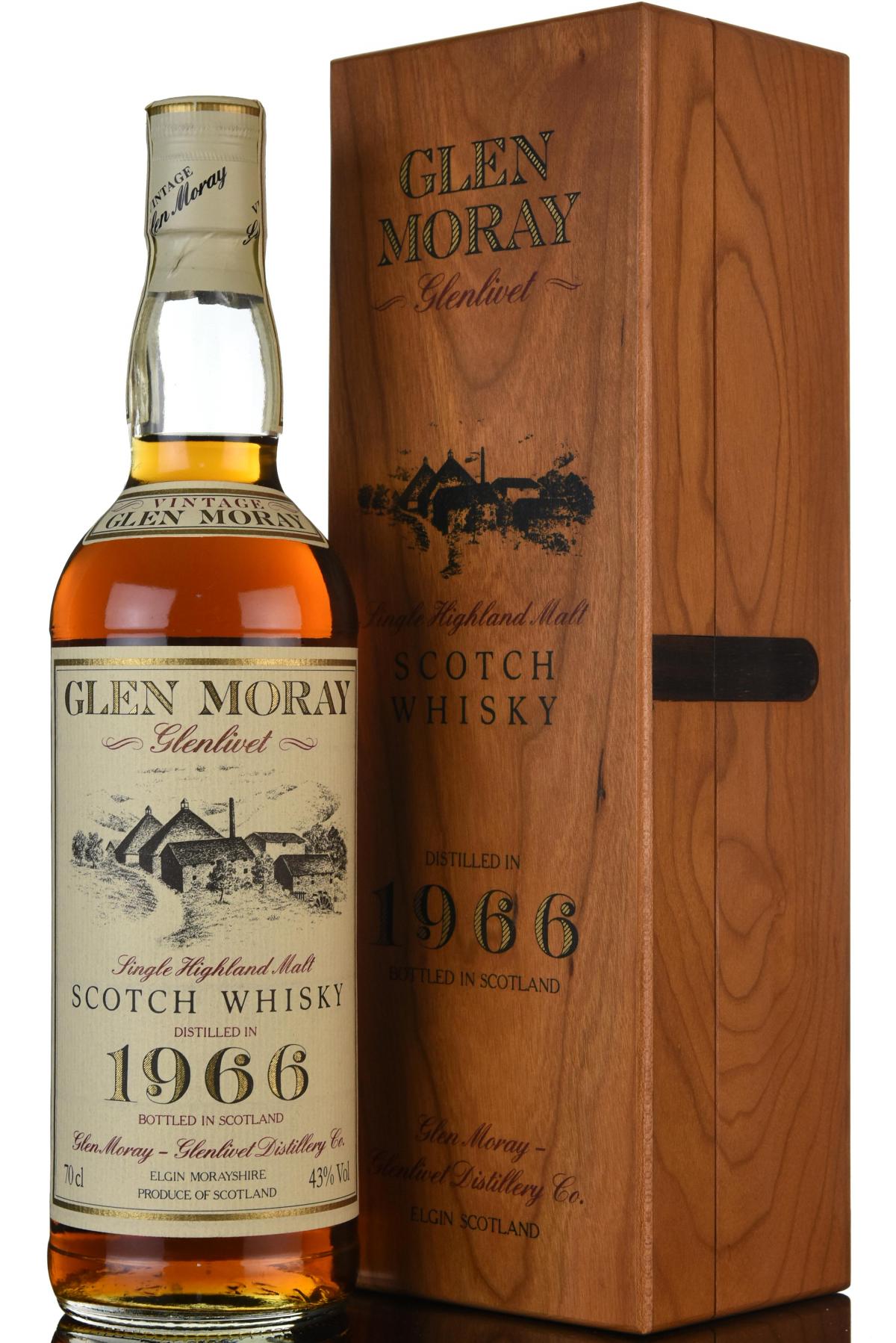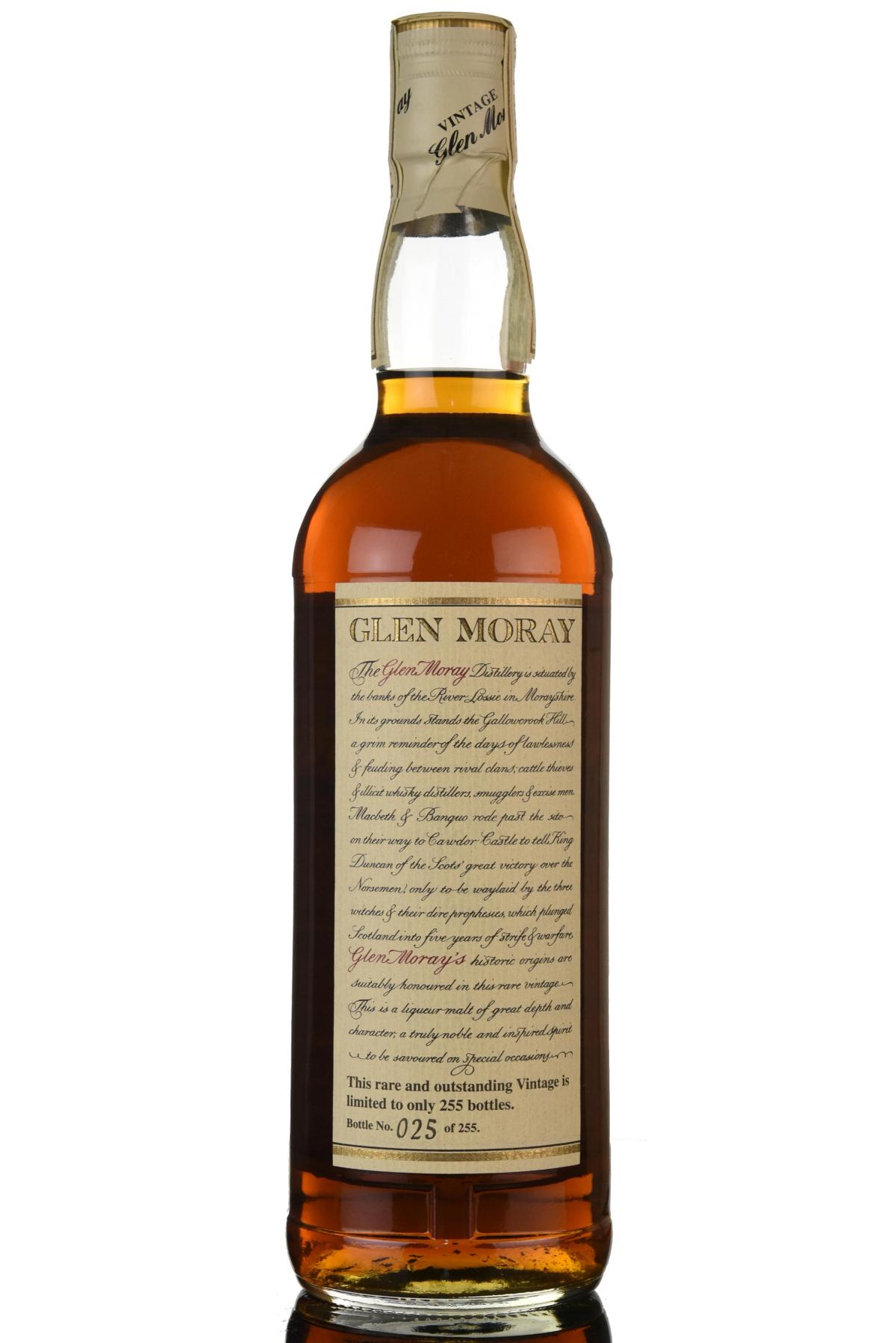End Date : Jan 04 2017 08:00 PM
We may have sold this bottle before. Click the graph below to view our sales history.
Glen Moray 1966. 26 Year Old. One of 255 bottles. 70cl. 43%. An old official bottling of the beautiful Glen Moray 1966 vintage, released as a 26-year-old in the early 1990s. Glen Moray is one of Scotland’s most underrated distilleries, which is great news for whisky fans as these beautiful old 1960s vintages bottled in the 1990s and early 2000s are still seriously undervalued. A delicious whisky, delicate and elegant in mouthfeel but packed with gorgeous old school fruit and waxy notes, with hints of herbs, minerally notes and oak spices adding to a remarkable complexity.
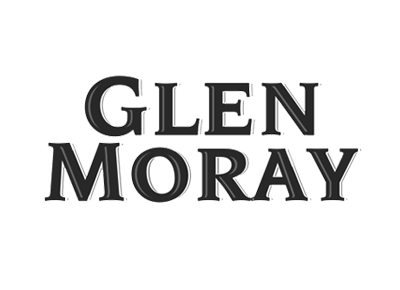
One of Speyside’s larger distilleries, Glen Moray was the black sheep of Macdonald & Muir’s portfolio for decades, where it was understandably overshadowed by Glenmorangie (and later Ardbeg). The distillery was sold by Glenmorangie plc’s owners LVMH to French company La Martiniquaise at the end of 2008, since when it has supplied fillings for Label 5 blended whisky, which is unknown in the UK but is one of the bestselling Scotch whisky brands worldwide.
Away from the bottom shelf wine finishes first popularised in the Glenmorangie era, official bottlings of Glen Moray have included some superb old vintage editions, with the 1959 40-year-old and several excellent 1960s-70s vintage bottlings demonstrating what the distillery was really capable of. La Martiniquaise have not changed the formula much but deserve credit for releasing further prestige editions including the recent Glen Moray Mastery.
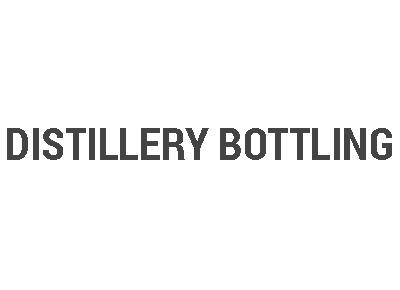
Distillery bottlings are, as the name suggests, bottled by or for the distillery from which the whisky has originated and are thus often referred to as Official Bottlings or OBs. Distillery bottlings are generally more desirable for collectors and usually fetch higher prices at auction than independent bottlings. They are officially-endorsed versions of the whisky from a particular distillery and are therefore considered the truest expression of the distillery’s character.
This ideal of the distillery character is regarded so seriously by the distilleries and brand owners that casks of whisky that are considered to vary too far from the archetype are frequently sold on to whisky brokers and independent bottlers. When this happens, it is often with the proviso that the distillery’s name is not allowed to be used when the cask is bottled for fear of diminishing or damaging the distillery’s character and status.
